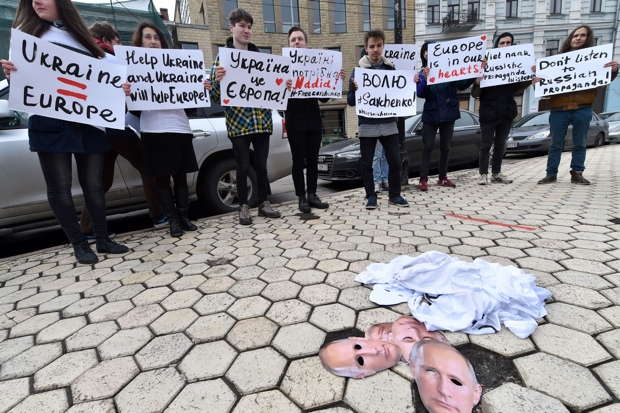Yesterday’s rejection of the EU-Ukraine Association Agreement by Dutch voters was loudly cheered by Leave campaigners. It will certainly have boosted their morale. It will also have increased the sense that the continent is in chaos and that the EU is becoming less credible. Ultimately, the result is rooted in the EU’s longstanding failure to address its many internal problems, above all its lack of accountability and weak democratic legitimacy. Since the referendum mechanism did not allow for a vote on EU membership itself, Dutch campaigners used the EU-Ukraine deal to express their displeasure with the EU project.
However, I doubt it will have significant implications for the UK referendum. From a Dutch perspective, the vote offered a free hit at domestic and EU elites, but also had the advantage of having virtually no practical implications for the Netherlands itself. The biggest repercussions will be felt in Ukraine, which wanted closer ties with the West but has now found itself rebuffed.
These low stakes explain the poor turnout – at 32 percent, it was only just above the threshold necessary for the vote to be considered valid. The same cannot be said of the UK’s referendum; a much more significant decision not only geopolitically, but also in terms of the direct impact on ordinary voters’ lives. Although there will clearly be an element of anti-establishment frustration, the swing voters who will determine the outcome will make a more sophisticated calculation about the pros and cons of Brexit.
In fact, the Dutch vote poses some uncomfortable questions for the Leave side. The result undermines one of its key arguments – that the EU is heading full pelt towards deeper integration in which the UK will inevitably become ensnared. Looking around Europe, it is hard to see much appetite for further integration. The Dutch No vote comes on top of other referendums (going back to the rejection of the European Constitution) and a series of national elections which have seen success for parties strongly critical of the EU. The logic of the Eurozone means that integration remains on the agenda, but the EU ‘becoming a single country’ – as some Leave campaigners claim – still seems a distant prospect.
The result has also exposed the lack of wider strategic thinking on the part of some Leave campaigners. Embracing an attitude of ‘whatever is bad for Brussels must be good for us’ ignores the wider geostrategic context. Regardless of whether the UK stays in the EU or not, it is hard to see how an unstable and corrupt Ukraine beholden to Russia is in the UK’s interest.
Finally, the Dutch referendum also exposes the potential vulnerability of any post-Brexit UK-EU trade deal. While the vote wasn’t specifically about trade, it nonetheless highlights that other countries can easily throw a spanner in the works, even for unrelated reasons. Assuming the UK and EU agree a relatively comprehensive deal, it will have to be approved not only by the European Parliament, but by the national parliaments of the remaining 27 member states.
The links between the Dutch referendum and the UK referendum should not be overblown. However, the result does seem to have brought warnings for both sides of Britain’s EU debate.
Pawel Swidlicki is a policy analyst at Open Europe.






Comments